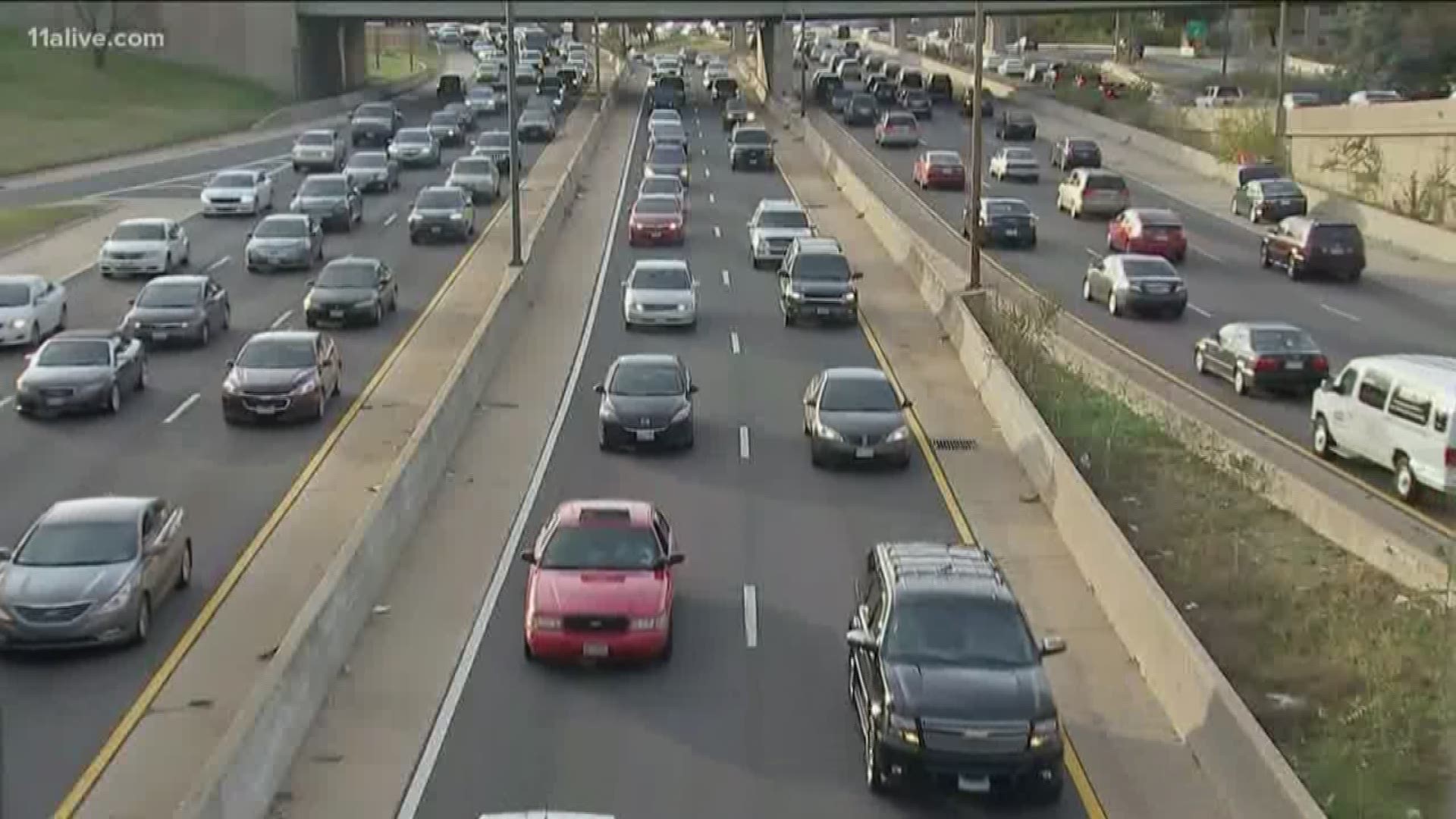ATLANTA — Anyone who lives in Atlanta know the area is notorious for bad traffic. What if it could be made even worse by malicious hackers?
What if our network of roads could be brought to a halt entirely?
According to Georgia Tech research, it could be done by hacking a surprisingly small percentage of cars.
In a paper published last week in the journal Physical Review E – “Cyberphysical risks of hacked internet-connected vehicles” – researchers found that in Manhattan, if hackers could disable just 20 percent of cars, it would effectively bring all traffic to a standstill.
One of the paper’s authors, Peter Yunker, told 11Alive that while the team did not run specific simulations for any other cities, a clean grid, like Manhattan’s, is best positioned to withstand such an attack.
Atlanta does not have a very clean street grid.
“Obviously in Midtown and Downtown there are some nice gridded sections, but most of Atlanta does not fall on a nice grid,” Yunker said. “If you have a grid there’s going to be many different ways to get from Point A to Point B, so if there is one way that’s blocked there are other options. Whereas the less gridlike you are, typically the fewer ways to get from A to B, so you become much less robust against any blockages.”
Yunker couldn’t guess what it would take to bring Atlanta’s traffic flow to a complete standstill, but it’s safe to say it’s less than Manhattan’s 20 percent.
The research was done by simulating a large-scale cyberattack event few people have probably considered – shutting down internet-connected cars and wreaking havoc on a city transportation network.
The study’s abstract maps out a “scenario envisioned by cybersecurity experts leading to a large number of internet-connected vehicles being suddenly and simultaneously disabled.”
In essence, imagine you’re driving down the road and your new, high-tech car is suddenly just turned off by a hacker. And, you notice, others around you are also coming to a halt.
It’s this kind of coordinated attack that could bring a city’s traffic to its knees.
“This could be a malicious hacker causing an accident, could be a hacker fools a sensor in a car to think there’s an object in front of it so it stops, or a hack was detected and the car shuts down before there’s any damage,” Yunker said.
He said in their simulations, they found as cars were disabled by hackers, they tended to come to a stop irregularly. That meant traffic could be blocked entirely without having to shut down all the cars on the road.
“Randomly stalling 20 percent of cars during rush hour would mean total traffic freeze," David Yanni, a graduate research assistant on Yunker's team, told Georgia Tech's news site. "At 20 percent, the city has been broken up into small islands, where you may be able to inch around a few blocks, but no one would be able to move across town."
It ties in with a concept in physics and math called percolation theory, which generally describes modeling physical events - for instance, the likelihood a wildfire will spread across an area, or what it would take to halt traffic by stopping cars.
“We find that the statistical physics of percolation can provide an estimate of the number of vehicles that critically disrupts citywide traffic flow,” the study’s abstract says.
The research team also didn’t examine whether, rather than targeting a specific amount of cars, what would happen if hackers strategically targeted certain critical roadways.
In this area, again, Yunker said Atlanta is particularly vulnerable.
“We’ve all experienced where we’re driving down a highway and there’s one lane shut down and traffic gets much worse, so you definitely don’t need to reach this 20 percent threshold to have an impact for things to be bad,” he said. “You can imagine that a city like Atlanta or Boston, there are a few roads that if they became unusable would suddenly have a very important downstream effect.”
Yunker said his team has already gotten feedback on their research from public policy professionals interested in planning for the possibility of this kind of attack.
“We have to think about this side of the future of connected and autonomous cars,” he said. “We’re not against autonomous cars or connected cars, there’s a lot of great aspects to them. We just want to bring up these potential downsides in the hope we can prepare for them and avoid them.”
MORE HEADLINES

